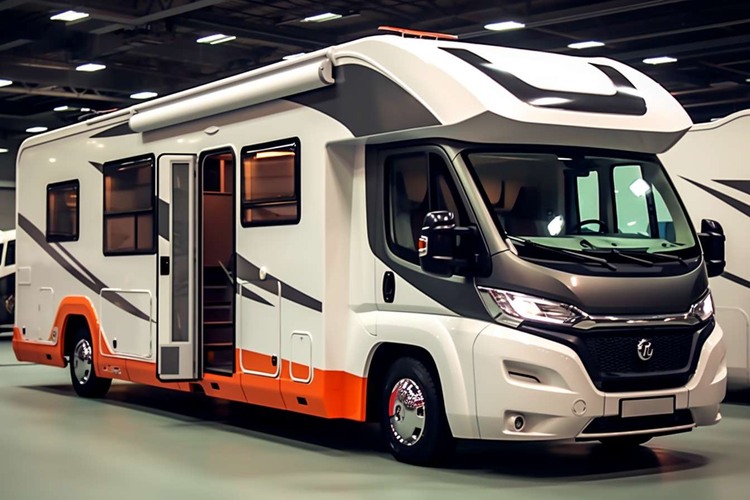Electric RVs and Campers: The Future of Sustainable Travel
The world of recreational vehicles is undergoing a revolutionary transformation with the emergence of electric RVs and campers. As environmental consciousness grows and technology advances, travelers are increasingly seeking eco-friendly, efficient alternatives to traditional fossil fuel-powered vehicles. Electric RVs represent a promising solution that combines comfort, sustainability, and cutting-edge technology for modern adventurers.

What Makes Premier RVs Provide Superior Comfort?
Electric RVs designed for superior comfort integrate advanced climate control systems, whisper-quiet operation, and smart energy management features. These vehicles utilize efficient heat pumps for heating and cooling, eliminating the need for propane systems while maintaining consistent interior temperatures. The absence of engine noise and vibration creates a peaceful environment for relaxation and sleep. Many premium electric RVs feature luxury amenities such as residential-style appliances, high-quality furnishings, and sophisticated entertainment systems powered by large-capacity battery banks and solar panel arrays.
How Do RVs Equipped with Bathrooms Work Electrically?
Electric RVs with bathroom facilities rely on efficient 12-volt and 120-volt systems to power water pumps, lighting, ventilation fans, and waste management systems. These vehicles typically feature low-flow fixtures to conserve water and extend boondocking capabilities. Electric water heaters, often tankless models, provide hot water on demand while minimizing energy consumption. Advanced composting toilets or efficient macerating systems reduce the need for frequent waste tank emptying, making electric RVs with full bathroom facilities practical for extended trips.
What Are the Trending RV Models in the Electric Market?
Current electric RV models gaining popularity include Class B camper vans, truck campers, and mid-size motorhomes designed specifically for electric powertrains. Manufacturers are focusing on lightweight construction using advanced materials to maximize range and efficiency. Popular configurations include compact travel trailers designed for electric vehicle towing and self-propelled electric motorhomes with ranges between 100-300 miles per charge. Many trending models feature modular designs that allow owners to customize their living spaces while maintaining optimal weight distribution for better range and handling.
What Creative Concepts Define Modern Electric RV Bathroom Design?
Electric RV bathroom design emphasizes space efficiency, water conservation, and energy-conscious fixtures. Creative concepts include wet baths with folding components, compact vanities with integrated storage, and multipurpose fixtures that serve dual functions. LED lighting systems with motion sensors reduce energy consumption while providing adequate illumination. Some designs incorporate heated floors powered by the main battery system, and advanced ventilation systems that recover heat while removing moisture. Smart mirrors with integrated displays show energy consumption and system status information.
How Do Cost Effective and Flexible Electric RV Choices Compare?
Electric RV ownership costs vary significantly based on vehicle size, battery capacity, and feature levels. While initial purchase prices typically exceed comparable gas-powered RVs, electric models offer lower operating costs through reduced fuel expenses and minimal maintenance requirements. Charging costs average $0.10-0.30 per mile depending on electricity rates and vehicle efficiency. Many electric RV owners report 50-70% lower annual operating costs compared to traditional RVs when factoring in fuel, oil changes, and engine maintenance savings.
| RV Type | Manufacturer | Battery Capacity | Range | Price Range |
|---|---|---|---|---|
| Class B Van | Winnebago eRV2 | 86 kWh | 125 miles | $200,000-250,000 |
| Travel Trailer | Lightship L1 | 80 kWh | 300+ miles | $125,000-150,000 |
| Truck Camper | EarthRoamer LTi | 100 kWh | 200 miles | $300,000-400,000 |
| Motorhome | Thor eStream | 120 kWh | 150 miles | $180,000-220,000 |
Prices, rates, or cost estimates mentioned in this article are based on the latest available information but may change over time. Independent research is advised before making financial decisions.
Technology and Infrastructure Considerations
Electric RV success depends heavily on charging infrastructure availability and trip planning around charging stations. Current fast-charging networks accommodate most electric RVs, though charging times range from 45 minutes to several hours depending on battery size and charger capacity. Many campgrounds now offer high-amperage electrical connections suitable for overnight RV charging. Solar panel systems integrated into electric RVs can extend range and provide off-grid power for appliances and lighting systems.
The transition to electric RVs reflects broader changes in transportation and recreation preferences, offering environmentally conscious travelers new ways to explore while minimizing their carbon footprint. As battery technology improves and charging infrastructure expands, electric RVs will likely become increasingly practical options for both weekend getaways and extended cross-country adventures. The combination of lower operating costs, reduced environmental impact, and advancing technology positions electric RVs as compelling alternatives to traditional recreational vehicles for many travelers.




